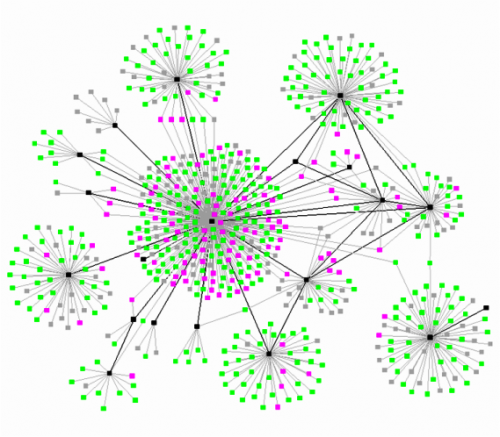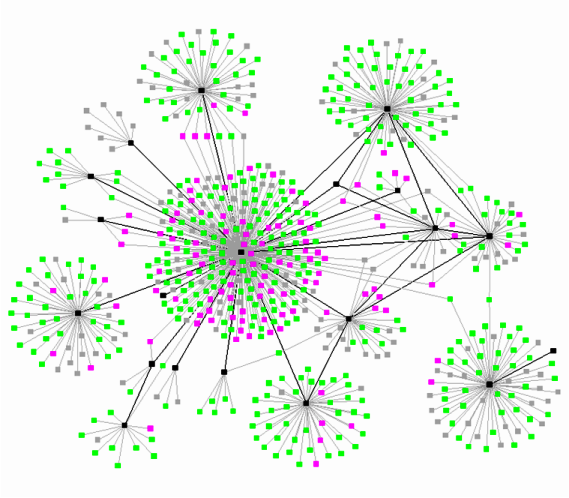 About a month ago In my post: Online Presence – Asset of the Future: Why Your Social Graph Will Be Worth As Much As Your Home. I wrote about the importance of building an online presence and it’s impact to your financial and personal success. One of the reasons I believe this will happen is because of the importance of acquaintances, which have been identified as more valuable to us than our closest friends. According to a study by Mark Gronnevetter the people we know casually or our “weak ties” are for more important to our lives and success than our closest friends or our “strong ties.”
About a month ago In my post: Online Presence – Asset of the Future: Why Your Social Graph Will Be Worth As Much As Your Home. I wrote about the importance of building an online presence and it’s impact to your financial and personal success. One of the reasons I believe this will happen is because of the importance of acquaintances, which have been identified as more valuable to us than our closest friends. According to a study by Mark Gronnevetter the people we know casually or our “weak ties” are for more important to our lives and success than our closest friends or our “strong ties.”
In 1974 and then in a 1980 follow up study, Mark identified the value of weak ties. Mark says simply, weak ties act as connectors to other social groups. Each of us have our own set of close friends that make up a densely knit clump. These densely knit clumps or strong ties are critical for our social well being, however stunt the flow of information and confines us to the information with in these close knit groups. Weak ties dictate our success by allowing access to the densely knit clumps of our acquaintances. This access to other densely knit groups allows information to flow. Weak ties are absolutely critical to access. The lack of weak ties deprives us of valuable information.
“This deprivation will not only insulate them from the latest ideas and fashions but may put them in disadvantaged position in the labor market where advancement can depend on knowing about appropriate job openings at just the right time. Furthermore, such individuals may be difficult to organize or integrate into political movements of any kind since membership in movements or goal oriented organizations typically results from being recruited by friends. While members of one or two cliques maybe efficiently recruited, the problem is, without weak ties, any momentum generated this way does not spread beyond the clique.”
What do social networks do better than anything else? They create 1000’s if not 10,000’s of weak ties. Social Networks are creating a weak tie economy, where those with the most and strongest weak ties are the affluent and those with the least and weakest are the poor. As Granovetter illustrates, weak ties are critical to getting work, organizing, and access to information. Those who are unwilling or unable to establish, and leverage weak ties will struggle to survive in this new social economy.
We have relied on weak ties long before the internet and social networks. Our offline weak-ties have always been apart of our personal and social status. We’ve used them to find jobs, to find help: like baby sitters, and handymen. We use them for information such as places to stay when we travel. Weak ties introduce us to books and movies and provide random, unexpected information we are unable to get from our close knit friends or strong ties.
Social Networks blow the concept of weak ties up. The avg. person is only capable of managing small number of offline “weak ties”, maybe 25 to 50. Social Networks allow us to grow our weak ties exponentially, to thousands and tens of thousands online. Social Networks also increase the velocity of our weak ties by getting us access and information in seconds.
In the not too distant future, not extending weak ties through a strong social presence and social networking will put people at a decided disadvantage. Social Networks are accelerating online, what we already rely on offline. Weak ties are stronger than strong ties. It’s always been this way. We’ve just never noticed it.
In a social economy, weak ties are the currency and wealth will be measured by the size of your weak tie bank account.
Are you growing your bank account?

